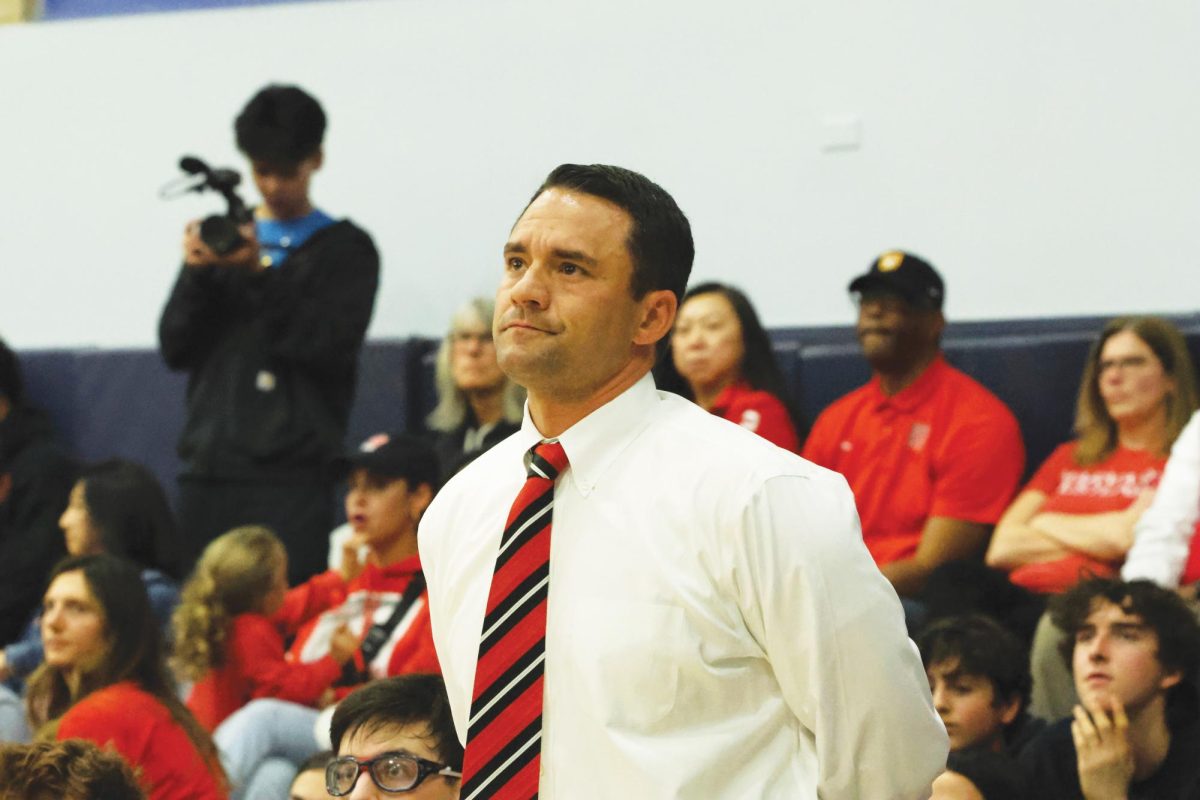By Sam Adams
The pencils of seniors drop at the end of the final semester exam, standard thought dictates, and with them plummet the studentsâ academic achievement for the duration of the year.
The phenomenon, often diagnosed in a clichéd manner as “senioritis,” is the subject of relentless demonization by teachers and colleges as well as idealization by just about every teen movie ever made.
Second semester seniors, it goes, throw caution to the wind along with their notebooks and lead an existence intoxicated by the freedom from grades reported to colleges.
For me, the experience has been more like drearily rubbing my eyes after staying up all night writing a paper, the rising sun assaulting after hours of my halogen desk lamp. In a way, I feel listless, almost lost without the anchoring cycle of neuroses about upcoming tests.
The hard labor of high school is over, and there is more to life than grades and SAT scores. We often miss this fact andour school tends to deemphasize the world beyond the classroom and the study table.
Most of us wonât take a gap year. Our path will flow from high school to college and maybe to grad school before we embark on our careers. Thatâs a daunting thought, to stand at the end of adolescence and look back at our time at Harvard-Westlake, and ahead to our futures.
The college process, that driving force that motivates so many of the late nights and early mornings, the practices and rehearsals, has an interesting effect: it makes us explore ourselves.
We are forced to introspect and figure out whether we are a liberal arts type or a business major, city or rural, where we will be happiest. It is one of the first major life crossroads where the ultimate decision lies with us. We have to look into ourselves and write essays summarizing our existence in about 500 words.
Granted, itâs a polished, idealized, academic version of ourselves we present in applications, but we still need to address that fundamental question: who am I? We finish our applications just a little bit more self-aware than we began them.
As college decisions start to roll in and grades begin to matter less, we lose the great incentive to work that is the grade point average. In that absence, we are given the opportunity to figure out what we actually care about.
Those subjects for which you still are studying late nights even when the grade doesnât really matter are probably the ones that you will delve further into in college and beyond.
If you find yourself uninterested in studying for a calculus test second semester, chances are you wonât become a mathematician. If youâre still devouring your economics textbook, though, that may be what you want to do with your life. We have an opportunity to educate ourselves without having to abide by the rigid curricula set by the AP system.
A couple weeks ago, I put off an English essay to see the new exhibit at LACMA with friendsâon a Thursday, no less! Instead of studying for a biology test, I went to a Tarantino double feature at a theater in Hollywood. Seeking education in a textbook is great, but we canât forget the vibrant city around us.
Of course, there is another side to the argument. After making a similar point to my AP Biology teacher, he shrugged and agreed, wishing me luck in my career as a trash collector.
And to a degree, he makes a good point; students know what theyâre getting themselves into when they enroll here. The achievement-oriented atmosphere is why we have top-caliber performances and athletics, not to mention prestigious college matriculations. The same drive that pushes us to study relentlessly is also that makes us successful.
Iâm not saying we should swing to the other side of the spectrum, ditching class and taking a joyride around town in Dadâs antique Ferrari like in “Ferris Buellerâs Day Off,” the quintessential movie about senioritis. But nowâs the time to find the balance between doing what we have to and what we want to, to explore what we are capable of outside of our comfort zone when the stakes of failing are as low as theyâll ever be.
Teachers are understandably frustrated by slacking seniors; classroom apathy can be perceived as disrespect to the teacher. But hereâs what I suggest: just as students are seeking education outside the classroom, so too can teachers educate beyond the class description we read in the curriculum guide last year.
Why not push that lecture about polar integration back a day in favor of a discussion of how math fits into music?
Parents are understandably worried at the sight of an unopened backpack; all our hard work making it to the end of senior year could be ruined by coming up lame the last couple months.
Trust your 18-year-old to make decisions that will not be disastrous. If that kind of confidence isnât there, maybe neither parent nor child is ready for college next year.
Never again in our lives will we have a chance to pursue things solely for the sake of it. In college, the specter of GPAs again prevails.
After we start careers, it is very hard to turn back or look around. The end of high school should be a breather to slow down and consider who it is we are, and where it is we want to go next.





































